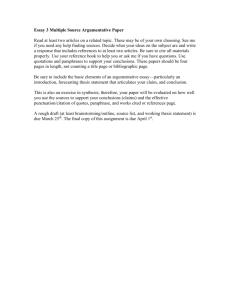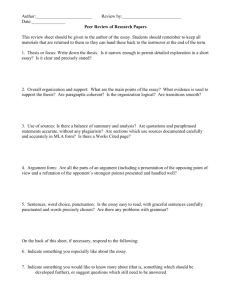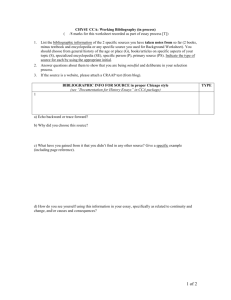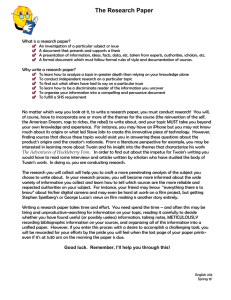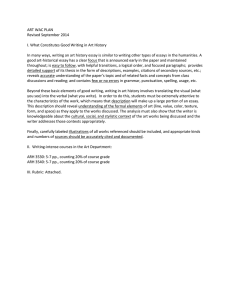Freakonomics/Critical Thinking paper project
advertisement
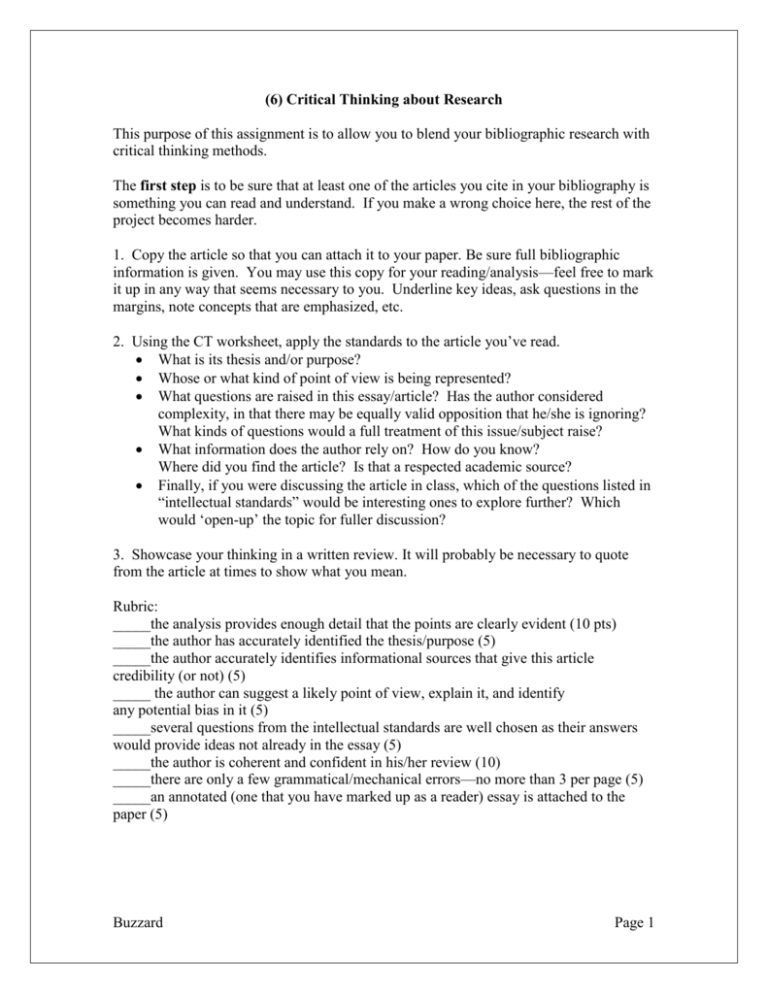
(6) Critical Thinking about Research This purpose of this assignment is to allow you to blend your bibliographic research with critical thinking methods. The first step is to be sure that at least one of the articles you cite in your bibliography is something you can read and understand. If you make a wrong choice here, the rest of the project becomes harder. 1. Copy the article so that you can attach it to your paper. Be sure full bibliographic information is given. You may use this copy for your reading/analysis—feel free to mark it up in any way that seems necessary to you. Underline key ideas, ask questions in the margins, note concepts that are emphasized, etc. 2. Using the CT worksheet, apply the standards to the article you’ve read. What is its thesis and/or purpose? Whose or what kind of point of view is being represented? What questions are raised in this essay/article? Has the author considered complexity, in that there may be equally valid opposition that he/she is ignoring? What kinds of questions would a full treatment of this issue/subject raise? What information does the author rely on? How do you know? Where did you find the article? Is that a respected academic source? Finally, if you were discussing the article in class, which of the questions listed in “intellectual standards” would be interesting ones to explore further? Which would ‘open-up’ the topic for fuller discussion? 3. Showcase your thinking in a written review. It will probably be necessary to quote from the article at times to show what you mean. Rubric: _____the analysis provides enough detail that the points are clearly evident (10 pts) _____the author has accurately identified the thesis/purpose (5) _____the author accurately identifies informational sources that give this article credibility (or not) (5) _____ the author can suggest a likely point of view, explain it, and identify any potential bias in it (5) _____several questions from the intellectual standards are well chosen as their answers would provide ideas not already in the essay (5) _____the author is coherent and confident in his/her review (10) _____there are only a few grammatical/mechanical errors—no more than 3 per page (5) _____an annotated (one that you have marked up as a reader) essay is attached to the paper (5) Buzzard Page 1
